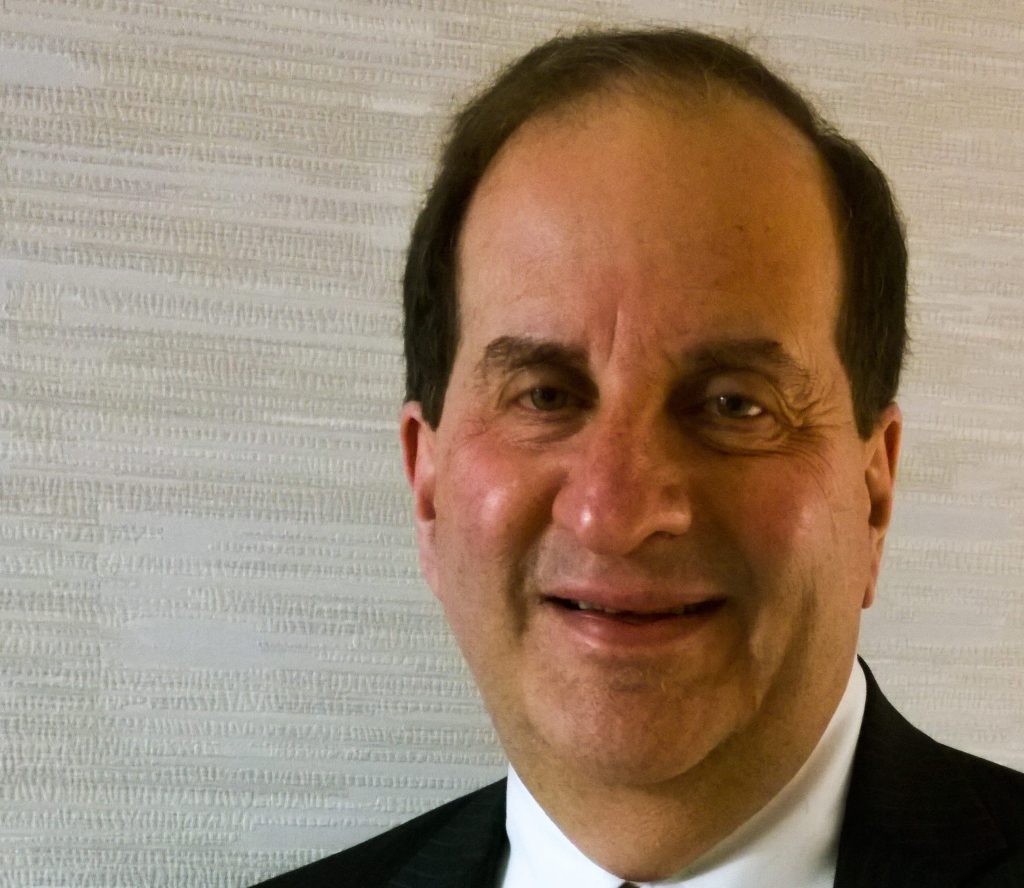Alan J. Grossman, Director of Marketing and Communications, American Friends of Bar-Ilan University. I grew up in Brooklyn, New York in a Zionistic family. My mother was the President of the major Brooklyn chapter of Hadassah. I earned my BA in Print Communications and Political Science from Binghamton University. Most of my career has been focused in the Jewish communal world. I have done marketing and communications work for the American Friends of Bar-Ilan University, Jewish National Fund, the Jewish Federation of Northern New Jersey, the Jewish Federation of MetroWest, NJ and the Sephardic Home for the Aged.
In your opinion, what importance, if any, does the existence of a Jewish state have to you personally and to Jewish people in general?
“The existence of Israel provides Jewish people around the world with a greater sense of power and respect. Even if I and others disagree with the country’s politics at times, we take tremendous pride in Israel’s accomplishments against all odds. It best reflects the Jewish People’s determination to make a difference in the world no matter what challenges are thrown at us.”
Do you feel committed in some way to defend the future existence of Israel?
“Yes, Israel’s ongoing existence is essential if the Jewish People are to thrive in the future. It took us thousands of years of powerlessness to further confirm that without a Jewish homeland we will always be adrift and weakened as a People. Israel provides a focus for Judaism and Jewish culture, history and values that must always be defended.”
Do you affiliate yourself with a specific confessional division in Judaism? What is your view regarding the dominance of the Orthodox division in Israel religious establishment?
“I am a member of a Conservative synagogue, which best suits my need to follow a more traditional religious path while being open to modernity and its positive effect on how we view the greater world. Israel would be that much stronger if it were more welcoming to Jewish practices that are followed in the Conservative, Reform and Reconstructionist movements. Every Jewish person should be respected, and better yet, valued for his or her beliefs. Diversity is a blessing, especially when it strengthens Clal Yisrael.”
Do you feel morally responsible for Israel’s actions (such as its management of the Israeli-Palestinian conflict)?
“I do not feel morally responsible on a personal level. This is a complex conflict where no easy answers exist. In a region of the world that is growing more chaotic and violent, Israel has to make difficult choices to insure its security. I would feel more responsible about Palestinian suffering if its leadership had acted responsibly to bring the conflict to an end with reasonable concessions such as agreeing to call Israel a Jewish State.”
In your opinion, what is the main thing Israelis fail to understand about the reality of being Jewish outside of Israel?
“That it is possible to have a full Jewish life outside of Israel, even if it is more challenging to do so in a diverse society. It is important for there to be a substantial Jewish presence outside of Israel, especially in the United States. Only in this way can pressure be brought upon government officials to support Israel. We also have a philanthropic infrastructure that is a major force for good on behalf of Israel and worldwide Jewry.”
How would you describe Israel’s policy (formally and in practice) regarding its relationship with the Diaspora?
“It should be more respectful of the denominational diversity that continues to be the underpinning for a vibrant Jewish community in the United States and Canada in particular. The Israeli leadership has made the right call in no longer focusing on Aliyah from these two countries. In the parts of the Diaspora where Jewish life is experiencing threats, such as what is happening now in Europe, I agree with the Israeli government’s call for greater Aliyah from these countries.”
In your opinion, does Israel have an obligation to defend and help Jewish communities in need?
“Israel’s first responsibility is to itself since it faces many extreme challenges posed by enemy states surrounding it. Its resources must focus on its own security, and dealing with its own societal issues that threaten to polarize Israelis of different backgrounds and economic classes.”
Have you ever been to Israel? if you have, can you summarize your impression from the Israeli reality?
“Yes, I have been to Israel many times. I am also impressed by the ingenuity I see in Israel at all levels. It is remarkable to see up-close the fortitude of Israelis who do not allow terrorist attacks to stop everyday life. We can all learn from their resilience when it comes to overcoming threats. There is no doubt that Israeli toughness and directness can be challenging at times, but it is certainly understandable.”
Can you tell us a bit about the Jewish community in your hometown? Is it organized? Are there community activities?
“I live in West Orange, NJ, which is a suburb outside New York City with a large Jewish community. It is part of suburban Essex County, which has synagogues of all denominations. West Orange itself has a growing Orthodox community. It also is the home to the Solomon Schechter day school and high school, which are sponsored by the Conservative movement. Probably the largest synagogues in the area follow the Reform movement. This diversity of Jewish observance is what helps to make the community strong.”
Is there a question you feel should be added to the project’s questionnaire?
“How can Jews of the Diaspora and Israel get to know each other better? There has to be more creative ways, especially in this age of technology, to improve communications on an ongoing basis between these two communities. There should also be joint projects that would benefit all Jewish people.”

